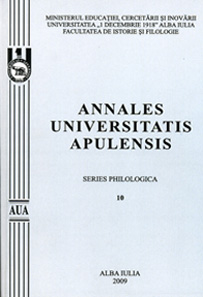Happy Alternatives to Traditional Teaching/Learning in the 21st Century
Happy Alternatives to Traditional Teaching/Learning in the 21st Century
Author(s): Luminiţa Andrei CocârţăSubject(s): Foreign languages learning
Published by: Universitatea »1 Decembrie 1918« Alba Iulia
Keywords: linguistic platform; intercultural skills; business skills; language skills; alternative method of teaching/learning
Summary/Abstract: Nowadays students in Business and Administration have a lot of elearning products and services they can use. Our paper focuses on an online linguistic platform that proved to be a happy alternative to traditional teaching/learning, offering a personalized, flexible, self-organized and collaborative method. There are certainly a lot of differences between traditional education or training and this ICT-based type of learning. Using a community of learners, trainers, facilitators and experts, e-learning has a great cultural and social impact on our globalised world. The platform is the result of a Transfer of Innovation type of project, whose products and services aim to develop the foreign languages and intercultural communication skills of business students and professionals. Using this platform with our students proved to be a useful and interesting experience. It helped us teach foreign languages online, by approaching a new and even funny way of developing practical language skills for business settings, by making students aware of the different cultural backgrounds of business actors, by encouraging them to effectively communicate in a foreign language in real business situations. We found out that the platform may help students as well as teachers in the process of teaching/learning, especially when it comes to individual study, encouraging the shyer students to participate and thus making them improve their linguistic and business skills. Therefore, we consider that nowadays it is a necessity to have access to alternative materials in the area of using foreign languages for special purposes, and this platform is a possible answer.
Journal: Annales Universitatis Apulensis. Series Philologica
- Issue Year: 11/2010
- Issue No: 2
- Page Range: 233-243
- Page Count: 11
- Language: English

